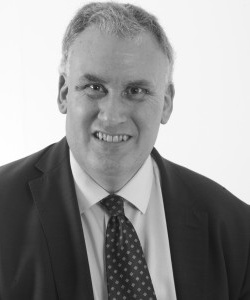 Today we feature an interview with Rev. Dr. Richard Turnbull. Turnbull is the director of the Centre for Enterprise, Markets and Ethics and a trustee of the Christian Institute. Turnbull received his PhD in theology at the University of Durham and is an ordained minister in the Church of England. He served as the Principal for Wycliffe Hall at Oxford University for seven years and is an advisor for AI&Faith.
Today we feature an interview with Rev. Dr. Richard Turnbull. Turnbull is the director of the Centre for Enterprise, Markets and Ethics and a trustee of the Christian Institute. Turnbull received his PhD in theology at the University of Durham and is an ordained minister in the Church of England. He served as the Principal for Wycliffe Hall at Oxford University for seven years and is an advisor for AI&Faith.
How would you describe your experience with AI?
My experience with AI is from the perspective of a writer, thinker and researcher of theology, economics, business, and ethics.
How would you describe your faith background?
I am a committed Christian and have served as a pastor, seminary president and think-tank director. I have published extensively in a variety of areas including full books, journal articles, shorter publications and so on. I published an acclaimed biography of one of the UK’s best known Christian social reformers, The Earl of Shaftesbury . Another area of interest has been the historic role of the Quakers in business and ethics . With respect to AI, I have published on work, the theology of work and indeed the future of work .
What led to your interest in the intersection of AI and faith?
The research and writing I have undertaken in the theology of work has raised many questions in relation to automation and AI. The nature of the divine image, the dignity of the human person, and conscience in relation to AI all raise significant theological and ethical questions. AI can be a force for good (contributing to wealth creation, prosperity, and flourishing) while also raising ethical challenges around the nature of the human person. I view technological advance as part of God’s provision for humanity whilst at the same time the future of work and the design of work (“good work”) mean that the human dimension remains central. The question of what it means to be human is central to AI debates.
Why are you involved with AI&F?
The opportunity to both network with and learn from others. To share a common experience and engage with new ideas.
How does AI&F affect your work outside the organization?
I engage with a wide range of business professionals, policy researchers and academics. The wisdom and insights gained from AI&F are invaluable in identifying the core issues and providing material for engagement. The religious backgrounds within AI&F are extremely helpful and enable me to represent a responsible faith perspective on a key issue which will affect and will shape future society. AI is an area where people of faith and of no faith alike can engage together in productive discussion and debate.
What open problems in AI are you most interested in?
I am interested in the future and design of work, as well as the nature and dignity of the human person. I am also interested in the nature of the human conscience. Finally, I am interested in how best to encourage growth and flourishing whilst recognizing the need for regulation that does not stifle innovation.
Acknowledgements
A big thanks to Dr. Richard Turnbull for taking the time to carry out this interview. Thanks to Emily Wenger for proofreading, editing, and publishing this work.
References
Turnbull, Richard. Shaftesbury: the great reformer. Lion Books, 2010.
Turnbull, Richard. Quaker capitalism. Oxford: Centre for Enterprise, Markets and Ethics, 2014.
Turnbull, Richard. “Work as Enterprise in an Age of Robots.” Business and Professional Ethics Journal (2023).


